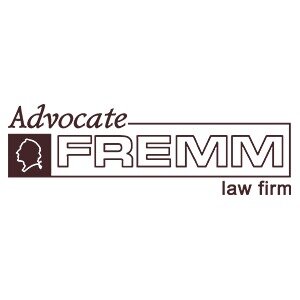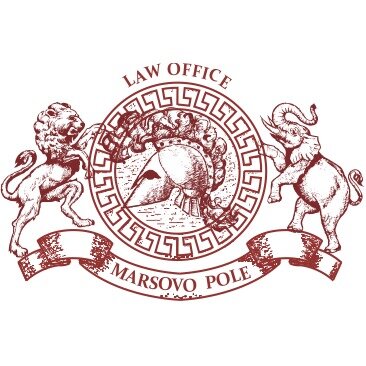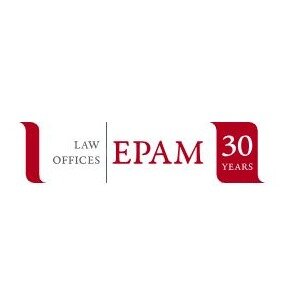
Best Housing, Construction & Development Lawyers in St Petersburg
Share your needs with us, get contacted by law firms.
Free. Takes 2 min.
List of the best lawyers in St Petersburg, Russia


Advocate FREMM

Petersburg Legal Center LLC

Marsovo Pole

Duvernois Legal

EPAM Law Firm

Bespalov, Stogov and Partners

Khrenov and Partners
About Housing, Construction & Development Law in St Petersburg, Russia
Housing, Construction & Development law in St Petersburg, Russia is a complex field that encompasses various legal aspects related to real estate, zoning regulations, building codes, and property rights. Russian housing legislation primarily seeks to protect the rights of homeowners, tenants, and real estate investors, while also promoting safe construction standards and sustainable urban development. In St Petersburg, a city known for its historic architecture and rapidly evolving urban landscape, housing and development laws must also balance the need for modernization with the preservation of cultural heritage.
Why You May Need a Lawyer
Individuals and businesses may require legal help in Housing, Construction & Development for a variety of reasons. Common situations include navigating the complexities of purchasing or selling property, resolving landlord-tenant disputes, obtaining construction permits, and ensuring compliance with local building codes and regulations. Additionally, legal assistance may be necessary when dealing with property rights issues, such as easements and encroachments, or when facing challenges related to historic preservation laws.
Local Laws Overview
St Petersburg's housing, construction, and development laws are governed by a combination of federal Russian legislation and local regulations. Key aspects to be aware of include:
- Zoning rules which dictate how land can be used and what types of structures can be built in different areas.
- Building codes that establish safety standards for new construction and renovation projects.
- Historic preservation laws that restrict alterations to protected buildings and areas, given St Petersburg's rich historical significance.
- Licensing requirements for construction firms and developers to ensure they are qualified to undertake such projects.
- The process for obtaining construction permits which involves multiple stages of approval from local authorities.
- Rights and obligations of property owners, landlords, and tenants, which are laid out in Russian housing laws.
Frequently Asked Questions
What documents are required for purchasing property in St Petersburg?
Purchasing property involves presenting a valid ID, the property title documents, a sales agreement, and paperwork confirming that the property is free from any encumbrances. Due diligence is also recommended before the transaction.
Do foreign citizens have the right to own property in St Petersburg?
Foreign citizens can own property in Russia, including St Petersburg, with some restrictions. For instance, they may not own land in border zones without government permission.
How can I ensure that a new construction project complies with local building codes?
Compliance with local building codes typically involves working with a licensed architect or contractor, obtaining the necessary permits, and undergoing inspections during and after construction.
What should I do if my landlord is violating my tenant rights?
If your landlord is violating your rights, you should attempt to resolve the issue through direct communication. If unsuccessful, seeking legal advice or contacting local tenant protection agencies may be necessary.
Can tenants make alterations to leased property?
Tenants usually need the landlord's written consent to make alterations to leased property and must comply with any conditions outlined in their lease agreement.
How are property disputes resolved?
Property disputes are typically resolved through negotiation or mediation, but they can also be taken to court if necessary. Engaging a lawyer experienced in property law is advised.
What are the legal ramifications of buying a historically protected property?
Buying a historically protected property can impose restrictions on alterations, renovations, and maintenance. Owners of such properties must preserve their historic character and comply with specific regulations.
How is new construction regulated in historic parts of the city?
New construction in historic areas is strictly regulated to ensure consistency with the architectural heritage. This can include limitations on the height, design, and materials used in construction.
Are there specific laws for condominiums or shared buildings in St Petersburg?
Yes, there are laws pertaining to the ownership, management, and maintenance of common areas in condominiums or shared buildings. These are outlined in the Russian Housing Code.
How can I find out if a property has any legal encumbrances?
To discover any legal encumbrances on a property, one should conduct a thorough due diligence, which may include checking the state real estate registry and obtaining an extract from the Unified State Register of Real Estate.
Additional Resources
For those seeking legal advice in St Petersburg's housing, construction, and development sector, the following resources may prove helpful:
- The St Petersburg City Administration's official website contains comprehensive information about local urban development policies and regulations.
- The Russian State Register provides an official database of real estate information and registration services.
- Local real estate associations and legal aid societies offer guidance and may provide referrals to qualified attorneys specializing in property law.
Next Steps
If you require legal assistance in Housing, Construction & Development in St Petersburg, consider taking the following steps:
- Document all pertinent details related to your legal issue, including contracts, communications, and other relevant transactions.
- Seek referrals for reputable lawyers who specialize in housing, construction, and development law.
- Schedule consultations with potential attorneys to discuss your case and determine the best course of action.
- Be proactive about understanding your rights and responsibilities related to your property or project to aid in your discussions with legal counsel.
The information provided on this page is intended for informational purposes only and should not be construed as legal advice. While we strive to present accurate and up-to-date information, we cannot guarantee the accuracy, completeness, or currentness of the content. Laws and regulations can change frequently, and interpretations of the law can vary. Therefore, you should consult with qualified legal professionals for specific advice tailored to your situation. We disclaim all liability for actions you take or fail to take based on any content on this page. If you find any information to be incorrect or outdated, please contact us, and we will make efforts to rectify it.


